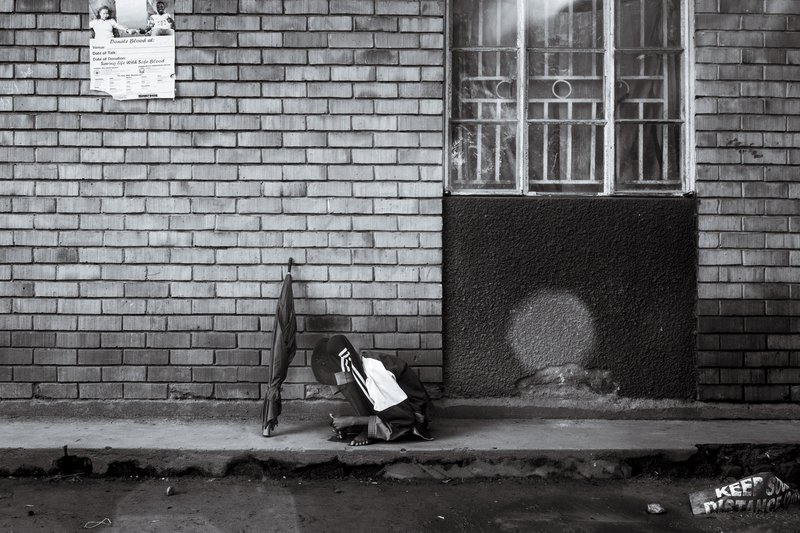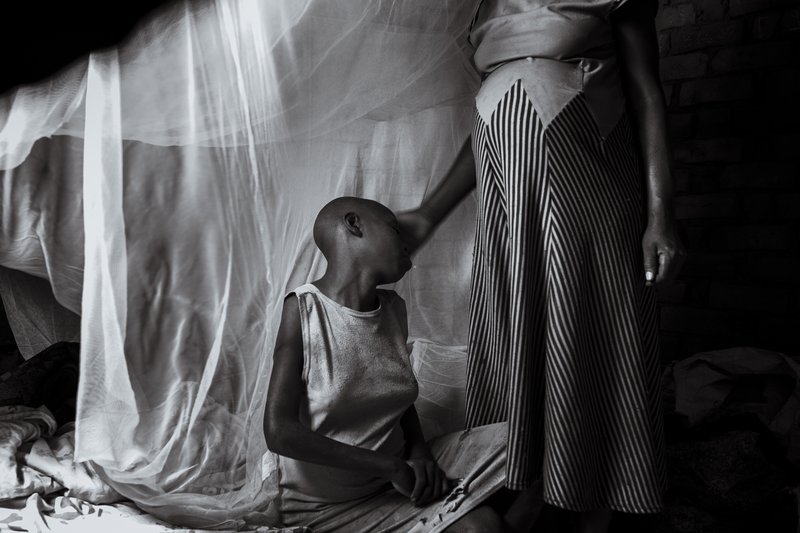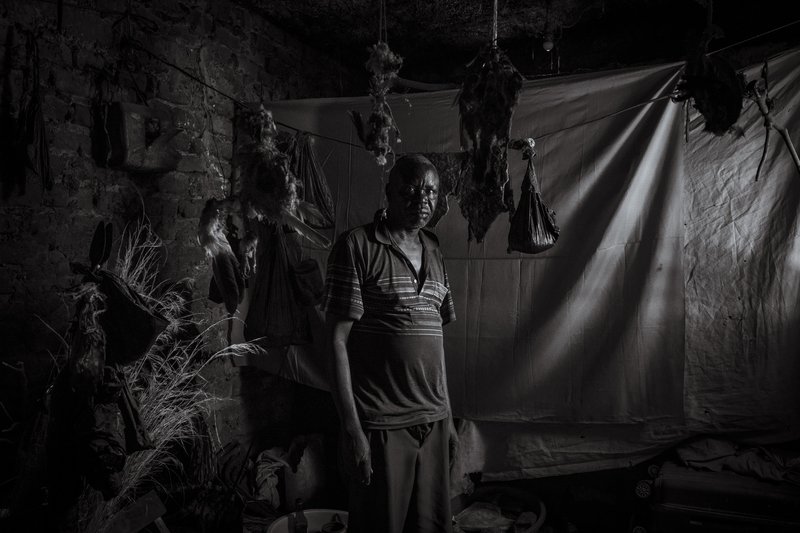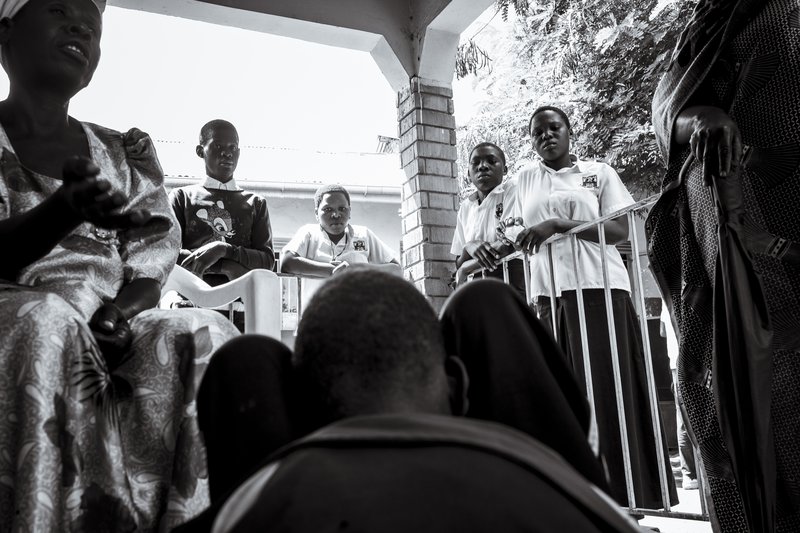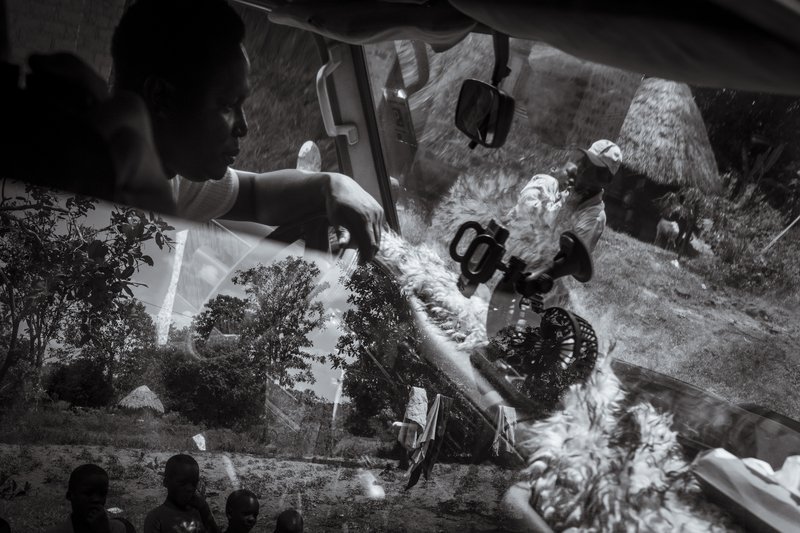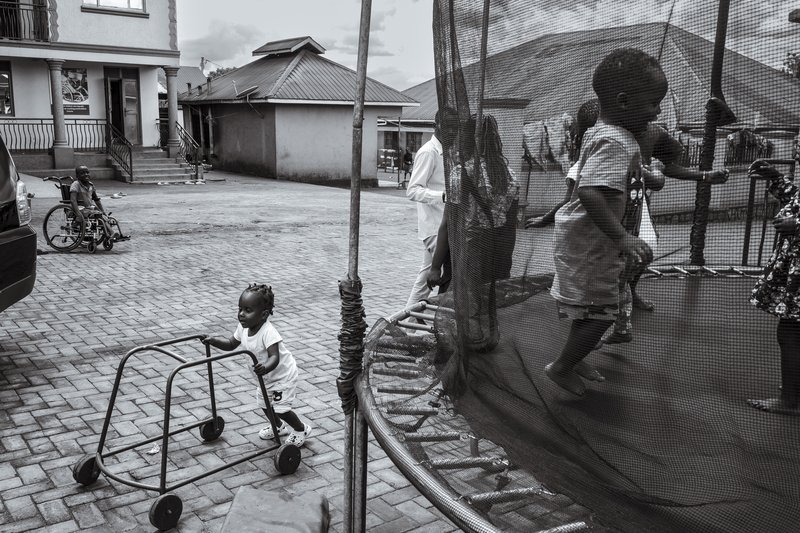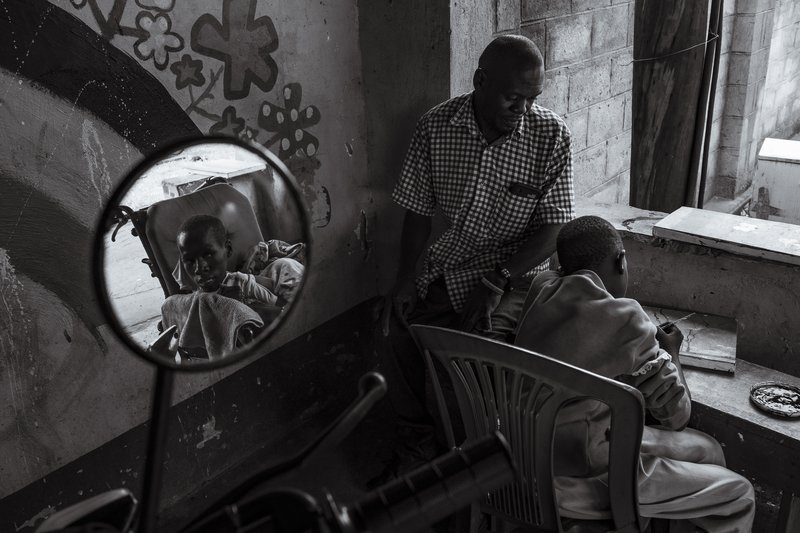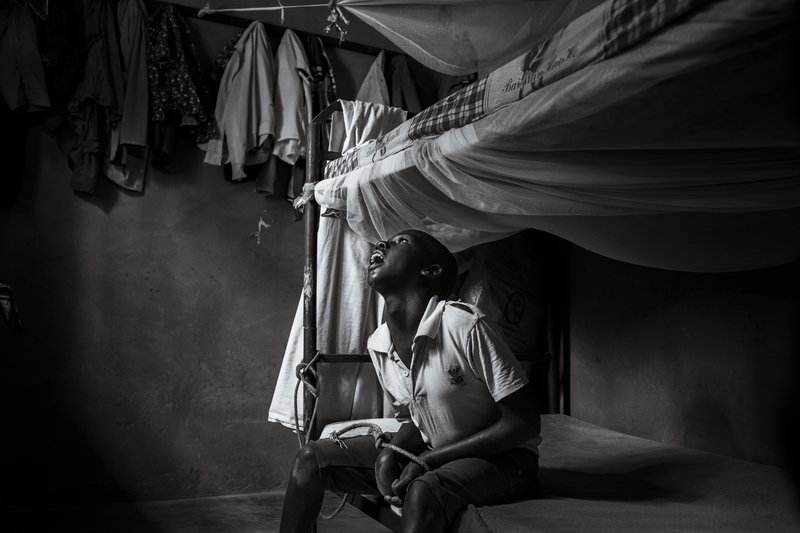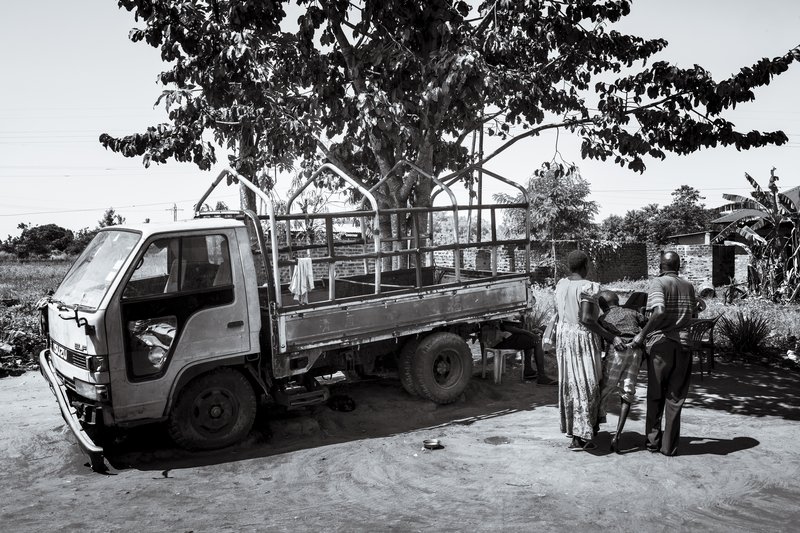Finalist: They Teach Us to Sing but There Are No Songs About Us
They Teach Us to Sing but There Are No Songs About Us
Moses 29 November 2024. Buwenge, Uganda. 16-year-old Moses sits alone in a pool of his own urine outside a community health outreach service held at a local high school. An epileptic and severely malnourished, Moses was brought to the outreach from Kamuli, which is over an hour away from Buwenge, by his mother who was worried about his lack of mobility. As a result of prolonged poor body positioning Moses has developed a curved spine and contractures in his knee joints making movement painful and limited. Education surrounding disability in rural regions is limited so Moses family was unaware of the physical therapy he should receive that would have provided flexibility and suppleness to his joints. The outreach provides oral medical treatment for those living with epilepsy in the region, however Moses' malnutrition means providing him with oral medicine wouldn't be recommended as his body would not be able to hold it in. Uganda is one of a handful of countries in sub-Saharan Africa recognised for its economic growth and stability yet despite this, its estimated 6 million citizens living with psychosocial or intellectual disability are being forsaken by systemic deficiencies that range from governmental policy failures to societal taboo. There is a broad lack of awareness of cognitive and developmental disabilities, which barely feature in government health programming, leaving local community-based organisations to provide education and support. Disabled children in Uganda are seen as a burden. So-called “mercy killings” are an accepted part of life in some rural areas. Children are still hidden and tethered inside, vulnerable to extreme forms of abuse and death, and one in four adults with a psychosocial or intellectual disability have been the victim of sexual assault. Restrictive practices such as restraint, tethering and forced seclusion are common, their prevalence meaning such practices are normalised within the community. This minority are considered a burden on society and stigma is fuelled by a cultural belief that those living with disability are cursed. While NGOs and local experts cite a lack of education and awareness within local communities as being the major hurdle in overcoming this taboo, they also say the Ugandan Government has failed to prioritise funding. Only 1.7% of the total health budget is allocated for non-communicable diseases, under which psychosocial and intellectual disability fall. In 2022, a trailblazing mother’s journey to have her son’s disability recognised led to a landmark Ugandan High Court decision finding the Ugandan Government guilty of human rights abuses towards people living with intellectual disability, particularly Autism. The decision and its outcome – for the Government to introduce guidelines which will enforce screening and therefore identifying children with intellectual disabilities – despite providing some hope, has been slow to roll out and many in the sector are sceptical of the Governments sincerity, and ability to help. Conceived in 2014, since 2020 ‘They Teach us to Sing…’ has increasingly become an examination of the failure of Government systems – health and justice in particular- in protecting an anguished and unheralded minority group which includes millions of children, from the face of human rights abuses. (Note: All permissions have been granted by parents or guardian.)
Christopher Hopkins
